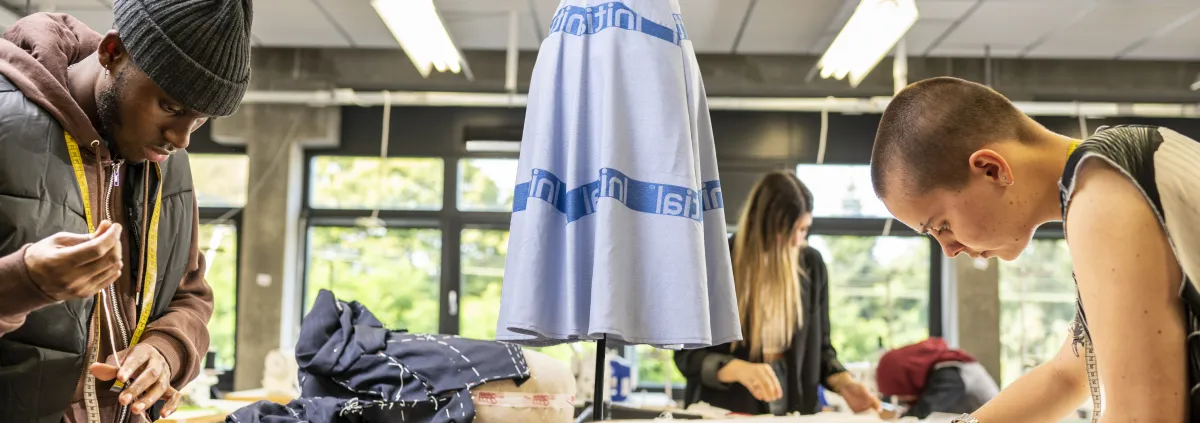In the heart of the Netherlands, in Hilversum, a sustainable fashion revolution is underway. 3,5 years ago the department of fashion degrees at Mbo College Hilversum (a VET school in the Netherlands), decided it was time to take real responsibility. In a few years’ time we transformed our linear industry focused education to a fully circular industry focused education. Sustainable fashion has now become the new normal at the college and students are prepared to become the changemakers for a greener, more sustainable and more inclusive future. It has not gone unnoticed, the college has already received an eco-schools green flag accreditation and one of the teachers was awarded the ‘most sustainable teacher 2022’ in the Netherlands.
Why the change?
The fashion and textile industry is notorious for its environmental impact, ranking among the world's top polluters. As a VET school we could not ignore the urgency for change any longer. That is why we embarked on a journey to transform our fashion education into a starting point of sustainability, inclusion, and ethical entrepreneurship. We are preparing the fashion professionals of the future. In such a polluting industry, we need to take responsibility to ensure that our students are able to make a difference.
The importance of the role of vocational education
Fashion is not just about style and trends anymore. It is our conviction that we all have to take responsibility, as a consumer and as a professional. Sustainable fashion is not a trend, it is here to stay and we are all part of the transformation from a linear industry to a circular industry. Vocational education plays a crucial role in this transformation. Here is why:
1. Real-World Skills: Our vocational education approach ensures that students gain practical, hands-on skills. This means they are not just learning about sustainability and ethics in theory, they are applying these principles in real-world scenarios.
2. Industry Relevance: Vocational education is closely tied to industry needs. By integrating sustainability and ethics into our fashion curriculum, we are ensuring that our students are not only job-ready but also equipped to drive positive change within the industry.
Empowering the new fashion professional
Our mission is clear: to prepare our students not just to succeed in the fashion industry but to lead its transformation. How? Through a curriculum that is fully focused on sustainable and circular fashion. Our students dive into modules like 'My Fashion Footprint' and 'Journey of the Jeans,' where they learn the real impact of fashion on the planet and learn about alternatives. They get hands-on experience working with recycled fabrics, implementing eco-friendly practices and circular design skills, and discovering how to be ethical entrepreneurs.
The future looks bright
As our students graduate, they are not just fashion professionals, they are trained to be changemakers in the fashion industry. They are equipped with the skills and knowledge to lead the way towards a sustainable and ethical fashion industry.
Mbo College Hilversum, part of ROC van Amsterdam – Flevoland


Fast fashion brands has led to the overconsumption of unsustainable clothing, accessories and footwear. Now more than ever, there is a need for the industry (and for the new fashion designers) to move towards a future where fashion is sustainable, circular, fair, and accessible to all.
Congratulations for these awards!!!
Well done!
Please log in or sign up to comment.